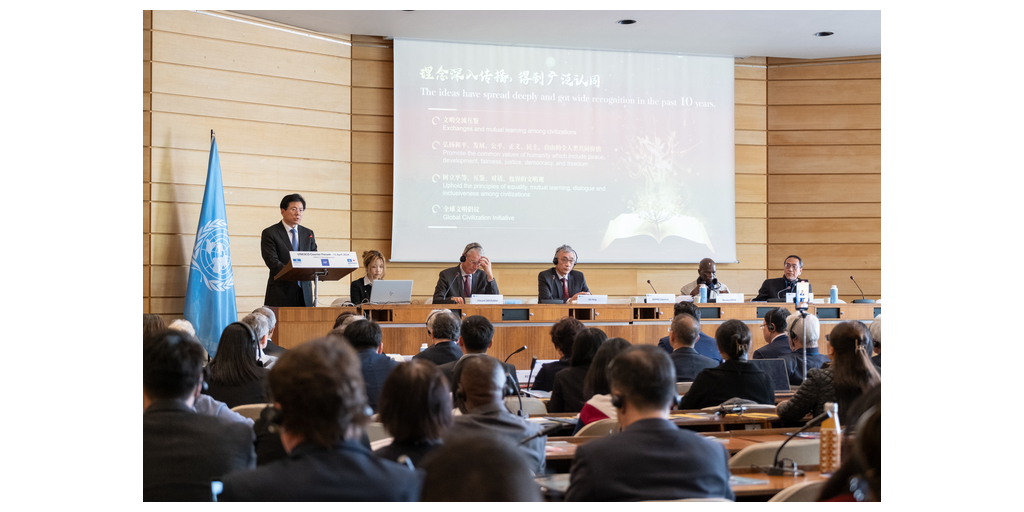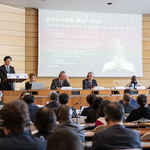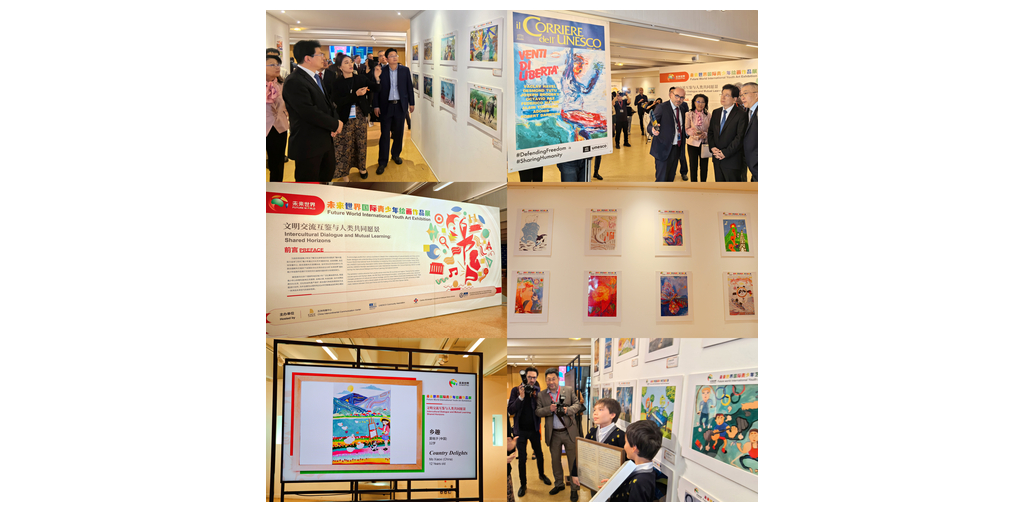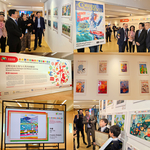PARIS–(BUSINESS WIRE)–A crayon drawing depicting doves soaring around the Olympic rings, connecting Beijing’s Temple of Heaven with the Eiffel Tower in Paris under a clear blue sky, captivated visitors at UNESCO headquarters. Inscribed with the word “world” in five languages, this artwork by international youth embodies hopes for a future enriched by intercultural dialogue. It serves as an opener to an international symposium on the concept of intercultural exchanges and mutual learning among civilizations, a collaborative effort between China’s State Council Information Office, UNESCO, and the China’s National Commission for UNESCO, held on April 15 in Paris.
The symposium unfolded both inside and outside the venue with vibrant displays and rigorous discussions. The Future World International Youth Art Exhibition encircled the entrance, offering a tapestry of cultural perceptions and exchanges as envisioned by young artists from around the globe. Inside, experts and scholars discussed the theme of “Intercultural Dialogue and Mutual Learning: Shared Horizons”, and commended China’s significant contributions to these global exchanges.
In his keynote speech, Zhang Jianchun, vice minister of the Publicity Department of the Central Committee of the Communist Party of China, revisited Chinese President Xi Jinping’s seminal 2014 speech at UNESCO headquarters that has since spurred the widespread embrace of intercultural exchanges and mutual learning. This doctrine, Zhang noted, has shaped a decade of international dialogue, offering “Chinese wisdom and solutions” for global betterment. These collaborative efforts have cultivated a robust “tree” of cultural exchange, bearing fruit in the form of enhanced global understanding and cooperation.
Speaking at the event, UNESCO Deputy Director-General Qu Xing quoted Édouard Glissant, the former editor of the UNESCO Courier, as saying, “always with the same horizon, recall our common humanity and promote the ‘Tout-monde’.” He added that today, as in the past, the UNESCO Courier continues to be a forum for the voices of intellectuals, experts, and artists from around the world.”
Euan Mackway-Jones, a UNESCO program specialist in the Section for Intercultural Dialogue, told Xinhua that dialogue is instrumental in mutual learning, fostering trust and cooperation essential in addressing global challenges like climate change, regional conflicts, and digital governance. Despite rising protectionist rhetoric, he observed, cultural integration is intensifying through digital interconnectivity, fostering innovative and collaborative expressions across cultures.
During a panel discussion themed on “Silk Roads: A Movement of Cultural Dialogue and Exchanges”, Susan Denyer, a senior world heritage advisor of International Council on Monuments and Sites, reflected on the harmonious relationship and cooperation facilitated by the ancient Silk Road, drawing parallels with contemporary global dynamics. Zhao Shengliang, chairman of the Academic Committee of Dunhuang Academy, discussed Dunhuang’s role as a crucial nexus on the Silk Road, where diverse civilizations historically converged and thrived.
The symposium also showcased the “Silk Road Young Scholars Grant Program”, with awardees presenting their insights on civilizational exchanges via video, underscoring a commitment to fostering a global dialogue among emerging scholars.
The day was rounded out by the Tracing the History of The UNESCO Courier exhibition, alongside the Chinese Culture: Elegant Gathering exhibition and reception. International guests experienced an array of activities including viewing the “Future World” international youth performance hosted collaboratively by China Intercontinental Communication Center, the UNESCO Community Association (UCA), Centre d’Echanges Culturels et Artistiques franco-chinois, UNESCO Member associations and clubs: International Association for Cultural Diplomacy.
They also explored exhibitions of calligraphy, painting, paper-cutting, quilling, as well as creative products from Chinese museums. Attendees also enjoyed a fusion of Eastern and Western artistic performances by Chinese-French children’s choirs, French singer, Chinese dancer, martial artist, and traditional musicians. Attendees also savored a variety of regional Chinese delicacies, such as Fujian and Shanxi cuisines and Jingmai Mountain Pu’er tea, appreciating the rich depth and exceptional allure of Chinese culture.
Contacts
Fiona Fan
[email protected]










